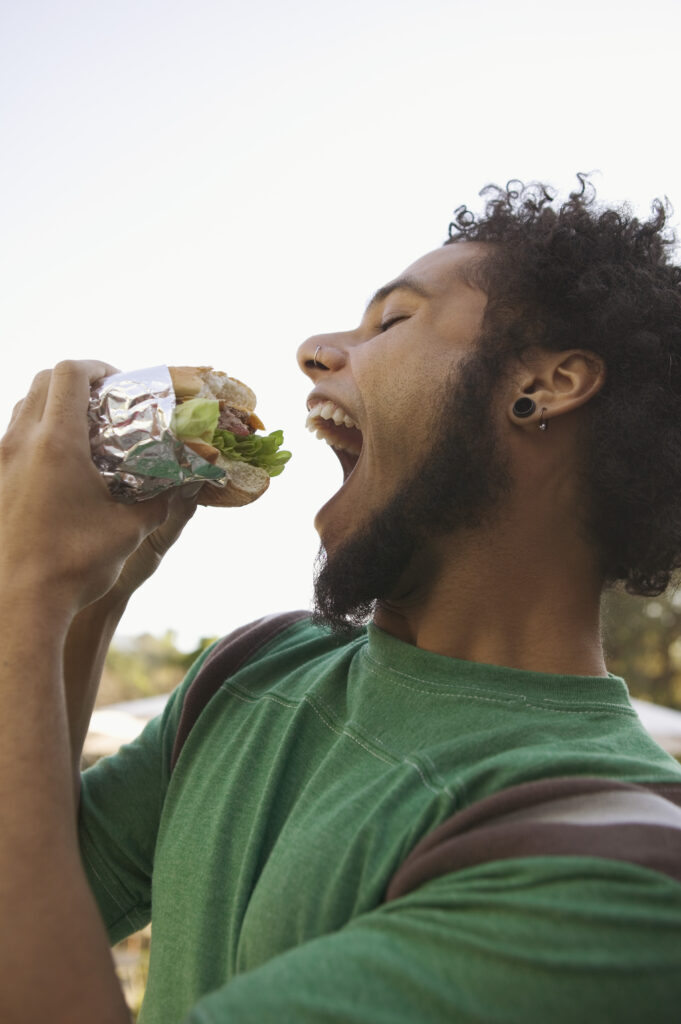 Maintaining a healthy weight is a goal for many of us, but it doesn't have to mean giving up on tasty treats, starving yourself, or trying to eat flavorless meals. Contrary to popular belief, there are several foods that are both satisfying and won't tip the scale in the wrong direction.
Maintaining a healthy weight is a goal for many of us, but it doesn't have to mean giving up on tasty treats, starving yourself, or trying to eat flavorless meals. Contrary to popular belief, there are several foods that are both satisfying and won't tip the scale in the wrong direction.
If you’re looking for all-you-can-eat foods, it may be worth revisiting your entire diet to make sure it’s satisfying. When people eat the right meals throughout the day, that tends to fill them up much more, and they don’t have that constant hunger.
Many foods pack a powerful nutritional punch for their calorie count. Examples are healthy proteins such as fish, chicken, tofu or beans, which should be part of each meal. You also want to add healthy fats from nuts and olive oil, vegetables and whole grains such as quinoa or brown rice to your meals. Snacking on other high-protein, high-fiber foods will help to hold you over until dinnertime. Though some of them do contain calories, they’re high in protein, so you won’t be tempted to overeat at your next meal.
Now, incorporating these 13 delectable options into your diet can help you enjoy guilt-free eating while promoting a balanced lifestyle.
13. Spinach:
Leafy greens like spinach, kale, and Swiss chard are packed with essential nutrients, high in fiber, and extremely low in calories. They provide volume and satiety without adding significant weight gain.
12. Dark Berries:
Berries such as strawberries, blueberries, and raspberries are not only bursting with antioxidants but are also low in calories. They make for a delicious guilt-free snack and can be added to smoothies, yogurt, or cereal for added flavor.
11. Brussel Sprouts:
Broccoli, cauliflower, Brussels sprouts, and cabbage are examples of cruciferous vegetables that offer a high nutritional value and are incredibly low in calories. They are also rich in fiber, which aids in digestion and promotes a feeling of fullness.
10. Lean Protein:
Skinless poultry, fish, tofu, and legumes are excellent sources of lean protein. They keep you feeling satisfied for longer periods, promote muscle growth, and help maintain a healthy weight without adding excess calories.
9. Greek Yogurt:
Greek yogurt is packed with protein and calcium while being relatively low in calories. It makes for a great snack or addition to smoothies, and its creamy texture adds a delightful touch to your meals.
8. Quinoa:
Quinoa is a whole grain that offers complete protein and is rich in fiber. It's a perfect substitute for rice or pasta, providing a nutritious option that won't cause weight gain.
7. Chia Seeds:
Despite their tiny size, chia seeds are incredibly nutrient-dense. They are high in fiber, omega-3 fatty acids, and antioxidants. When mixed with liquid, chia seeds expand and create a gel-like texture, making them a great addition to puddings, smoothies, or yogurt.
6. Air-Popped Popcorn:
Popcorn, when air-popped without added oils or butter, is a whole grain snack that's low in calories. It provides a satisfying crunch and can be enjoyed guilt-free in moderate portions.
5. Watermelon:
Watermelon is a refreshing and hydrating fruit that is mostly composed of water. It's low in calories and high in vitamins A and C, making it an ideal choice for weight-conscious individuals.
4. Cucumber:
Cucumbers are incredibly hydrating, with a high water content and minimal calories. They make a crunchy and refreshing addition to salads or can be enjoyed as a light snack.
3. Egg Whites:
Egg whites are an excellent source of protein and can be used in various dishes. They are low in calories and fat, making them a suitable option for weight management.
2. Almonds & Select Nuts:
Although nuts are energy-dense, almonds are a great snack option when consumed in moderation.
Nuts pack in protein and fiber, according to the Mayo Clinic, which makes them filling foods. A daily serving may also help you lose weight, according to another study from Harvard researchers. And a separate study found that people on a 12-week diet that included a handful of mixed nuts daily had higher levels of serotonin (a hormone that can decrease appetite) than those who didn’t eat nuts.
However, the calories from nuts and nut butters can add up quickly because they are such a rich source of healthy fats, says Kennedy. While this fat is not a bad thing and is actually good for you, it’s important to keep an eye on portion size when eating nuts. Dieticians recommend keeping your portion size to 1.5 oz, or a small handful of nuts, each day. (The amount of fat differs from nut to nut; for example, 1.5 oz of whole almonds have about 21 g of fat, notes the USDA). If you find that you’re not losing weight, take a look at your portion of nuts again and see if you need to make adjustments. It’s also important to choose nuts without any added fat, sugar, or salt, which can decrease the overall healthfulness of the nuts.
1. Green Tea:
While not technically a food, green tea deserves a mention for its weight management benefits. It contains antioxidants and compounds that may increase metabolism and aid in fat burning, making it a healthy beverage choice.
Achieving and maintaining a healthy weight doesn't mean you have to sacrifice flavor or satisfaction. By incorporating these 13 foods into your diet, you can indulge in delicious meals while keeping calorie intake in check. Remember, portion control and overall dietary balance are essential factors in maintaining a healthy lifestyle. So go ahead, savor these guilt-free options, and enjoy a balanced and fulfilling relationship with food.
Now on the opposite side...
Foods to AVOID if You're Trying to Lose Weight
1. White bread
White bread is highly refined and often contains a lot of added sugar. It also lacks beneficial nutrients like protein and fiber that help you feel more full.
It is high on the glycemic index, meaning that it can lead to a rapid increase in blood sugar levels (8, 9).
One 2014 study of 9,267 people found that eating two slices (120 grams) of white bread per day was linked to a 40% greater risk of becoming overweight or having obesity (10Trusted Source).
Alternatives
There are many nutritious alternatives to conventional refined wheat bread, including:
- Ezekiel bread, which is made from sprouted grains and legumes
- whole grain bread
- whole wheat bread
These alternatives are generally higher in fiber as they are made from unrefined flour and may have other nutritious ingredients, such as seeds and oats.
However, remember that all wheat breads contain gluten, which people with celiac disease or gluten sensitivity should avoid.
Some other options for those following a gluten-free diet include:
- oopsie bread
- cornbread
- almond flour bread
2. White Rice
Similarly to bread and pasta, white rice is very low in fat but also contains minimal fiber and protein. A 2016 study in Iran identified a link between white rice consumption and obesity in female adolescents. White rice also has a high glycemic index, which means that it can cause a spike in a person’s blood sugar levels after they eat it.
Alternatives
Brown rice, quinoa, and cauliflower rice are healthful alternatives to white rice. These options are richer in dietary fiber, which can help a person feel fuller for longer.
3. Granola bars and Energy bars
Although energy and granola bars are often rich in fiber and protein, they can sometimes contain as much sugar as a candy bar.
Alternatives
More healthful snack options include:
- sliced apple with peanut butter
- mixed nuts
- Greek yogurt with berries
- a hard-boiled egg









